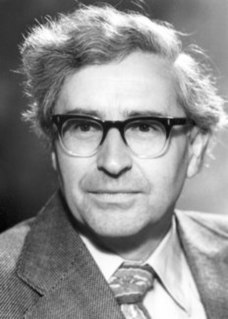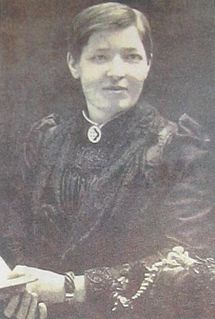A Quote by Thomas Browne
To call ourselves a Microcosme, or little world, I thought it onely a pleasant trope of Rhetorick, till my neare judgement and second thoughts told me there was a reall truth therein: for first wee are a rude masse, and in the ranke of creatures, which only are, and have a dull kinde of being not yet priviledged with life, or preferred to sense or reason; next we live the life of plants, the life of animals, the life of men, and at last the life of spirits, running on in one mysterious nature those five kinds of existence, which comprehend the creatures not onely of world, but of the Universe.
Quote Topics
Related Quotes
We are the only alive creatures that are mortals; the animals are immortal, which is why they live stupidly. We are the only creatures that know that we will die, but that is a gift. It's important because we know we have to take advantage and squeeze life and understand why we're here in the first place.
Nature is the system of laws established by the Creator for the existence of things and for the succession of creatures. Nature is not a thing, because this thing would be everything. Nature is not a creature, because this creature would be God. But one can consider it as an immense vital power, which encompasses all, which animates all, and which, subordinated to the power of the first Being, has begun to act only by his order, and still acts only by his concourse or consent ... Time, space and matter are its means, the universe its object, motion and life its goal.
Rational thinking which is free from assumptions ends therefore in mysticism. To relate oneself in the spirit of reverence for life to the multiform manifestations of the will-to-live which together constitute the world is ethical mysticism. All profound world-view is mysticism, the essence of which is just this: that out of my unsophisticated and naïve existence in the world there comes, as a result of thought about self and the world, spiritual self-devotion to the mysterious infinite Will which is continuously manifested in the universe.
Thousands of years ago, man lived in harmony with the rest of the natural world. Through what we would today call Telepathy, he communicated with animals, plants, and other forms of life-none of which he considered "beneath" himself, only different, with different jobs to perform. He worked side by side with earth angels and nature spirits, with whom he shared responsibility for taking care of the world.
I believe in God. It makes no sense to me to assume that the Universe and our existence is just a cosmic accident, that life emerged due to random physical processes in an environment which simply happened to have the right properties. As a Christian I begin to comprehend what life is all about through belief in a Creator, some of whose nature was revealed by a man born about 2000 years ago.
We live in a world which in some respects is mysterious; things can be experienced which remain inexplicable; not everything which happens can be anticipated. The unexpected and the incredible belong in this world. Only then is life whole. For me the world has from the beginning been infinite and ungraspable.
And now because you are His child, live as a child of God; be redeemed from the life of evil, which is false to your nature, into the life of goodness, which is the truth of your being. Scorn all that is mean; hate all that is false; struggle with all that is impure Live the simple, lofty life which befits an heir of immortality.
I cannot conceive of a God who rewards and punishes his creatures, or has a will of the kind that we experience in ourselves. Neither can I nor would I want to conceive of an individual that survives his physical death; let feeble souls, from fear or absurd egoism, cherish such thoughts. I am satisfied with the mystery of the eternity of life and with the awareness and a glimpse of the marvelous structure of the existing world, together with the devoted striving to comprehend a portion, be it ever so tiny, of the Reason that manifests itself in nature.
For my part, I feel that with regard to Nature I live a sort of border life, on the confines of a world, into which I make occasional and transient forays only, and my patriotism and allegiance to the state into whose territories I seem to retreat are those of a moss-trooper. Unto a life which I call natural I would gladly follow even a will-o'-the-wisp through bogs and sloughs unimaginable, but no moon nor fire-fly has shown me the cause-way to it. Nature is a personality so vast and universal that we have never seen one of her features.
If life is to be fully human it must serve some end which seems, in some sense, outside human life, some end which is impersonal and above mankind, such as God or truth or beauty. Those who best promote life do not have life for their purpose. They aim rather at what seems like a gradual incarnation, a bringing into our human existence of something eternal, something that appears to imagination to live in a heaven remote from strife and failure and the devouring jaws of Time.
To affirm life is to deepen, to make more inward, and to exalt the will-to-life. At the same time the man who has become a thinking being feels a compulsion to give every will-to-live the same reverence for life that he gives to his own. He experiences that other life as his own. He accepts as being good: to preserve life, to raise to its highest value life which is capable of development; and as being evil: to destroy life, to injure life, to repress life which is capable of development. This is the absolute, fundamental principle of the moral, and it is a necessity of thought.
In Christ, we become new creatures. His life becomes ours. Take that word 'life' and turn it over and over and press it and try to measure it, and see what it will yield. Eternal life is a magnificent idea which comprises everything the heart can yearn after. Do not your hearts yearn for this life, this blessed and eternal life, which the Son of God so freely offers?
We are all born as animals and live the life that animals live: we sleep, eat, reproduce, and fight. There is, however, another order of living, which the animals do not know, that of awe before the mystery of being ... that can be the root and branch of the spiritual sense of one’s days. That is the birth - the Virgin Birth - in the heart of a properly human, spiritual life.
What we want is another sample of life, which is not on our tree of life at all. All life that we've studied so far on Earth belongs to the same tree. We share genes with mushrooms and oak trees and fish and bacteria that live in volcanic vents and so on that it's all the same life descended from a common origin. What we want is a second tree of life. We want alien life, alien not necessarily in the sense of having come from space, but alien in the sense of belonging to a different tree altogether. That is what we're looking for, "life 2.0."



































